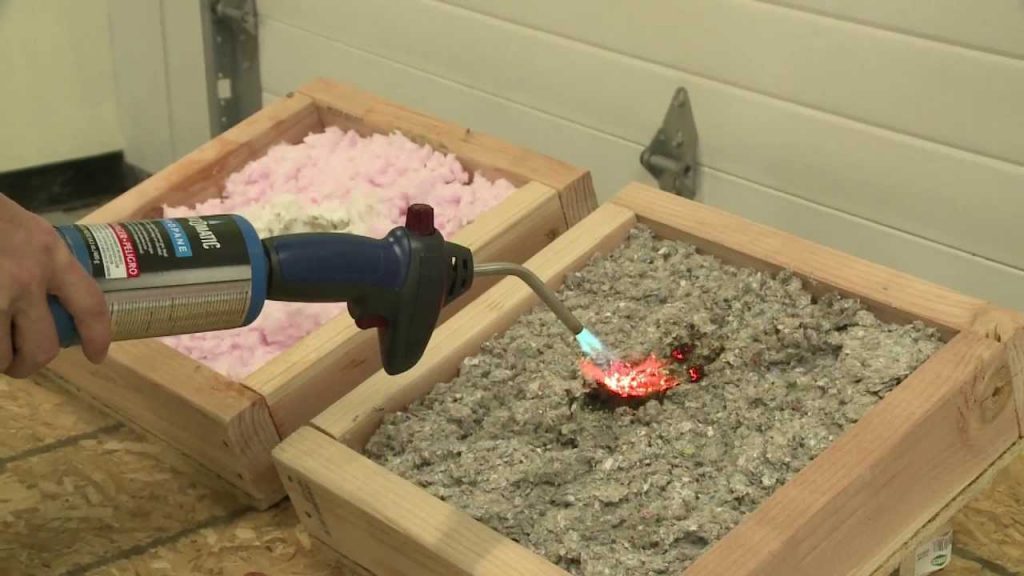Is Wool Insulation Fireproof? Exploring the Fire Resistance of Wool Insulation

When it comes to insulating our homes, fire safety is a crucial consideration. With various insulation materials available in the market, it's important to understand their fire resistance properties. In this article, we will delve into the topic of wool insulation and explore whether it is fireproof or not. We will examine the fire resistance characteristics of wool insulation, its benefits, and any precautions that need to be taken to ensure fire safety. So, let's dive in and uncover the truth about wool insulation and its fireproof qualities.
Understanding Wool Insulation:
Wool insulation is a natural and sustainable option for insulating buildings. Made from sheep's wool, it offers several advantages over synthetic insulation materials. Wool fibers have a unique structure that allows them to trap air, providing excellent thermal insulation. Additionally, wool is breathable, moisture-resistant, and has good acoustic properties. However, when it comes to fire resistance, wool insulation requires closer examination.
Fire Resistance of Wool Insulation:
While wool insulation is not inherently fireproof, it exhibits some favorable fire resistance properties. Wool fibers are composed of protein, which has a higher ignition temperature compared to synthetic materials like polystyrene or fiberglass. This means that wool insulation is less likely to ignite or contribute to the spread of fire. In the event of a fire, wool insulation tends to smolder rather than burn, reducing the release of toxic gases.
Fire Safety Precautions:
Although wool insulation has inherent fire-resistant qualities, it is essential to take certain precautions to ensure optimal fire safety. Here are some key measures to consider:
- Compliance with Building Codes: Ensure that the wool insulation you choose meets the fire safety standards and regulations set by your local building codes. This ensures that the insulation material has undergone rigorous testing and meets the necessary fire resistance requirements.
- Installation Techniques: Proper installation is crucial for maintaining fire safety. Follow the manufacturer's guidelines and recommendations for installing wool insulation, paying attention to details such as sealing gaps and avoiding compression of the material, which could affect its fire resistance properties.
- Fire Retardant Treatments: Some wool insulation products may undergo fire retardant treatments to enhance their fire resistance. These treatments can further improve the fire safety performance of wool insulation, making it a more reliable choice.
Benefits of Wool Insulation:
Apart from its fire resistance properties, wool insulation offers numerous benefits for homeowners and the environment. These include:
- Thermal Performance: Wool insulation provides excellent thermal performance, helping to regulate indoor temperatures and reduce energy consumption for heating and cooling.
- Moisture Management: Wool fibers can absorb and release moisture, helping to maintain a healthy indoor environment by managing humidity levels and preventing condensation.
- Sound Absorption: Wool insulation has superior acoustic properties, reducing noise transmission and creating a quieter living space.
- Sustainability: Wool is a renewable and biodegradable material, making wool insulation an eco-friendly choice compared to synthetic alternatives.
Conclusion:
While wool insulation is not entirely fireproof, it possesses favorable fire resistance properties due to its higher ignition temperature and smoldering behavior. When combined with proper installation techniques and adherence to building codes, wool insulation can contribute to a safer and more energy-efficient home. Remember to consult with professionals and manufacturers to ensure you choose the right wool insulation product that meets your specific fire safety requirements. By considering the fire resistance of wool insulation alongside its other benefits, you can make an informed decision for your insulation needs.